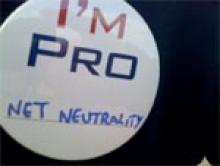Seattle Will Take Year to Study Community Fiber Network
After Seattle's new Mayor campaigned on a community fiber network and consulted with both Lafayette and Tacoma on how to build it, it will now spend a year considering its options.
In discussing the current options for broadband in the city, Governing Magazine notes lack of demand for Comcast's "up to" 50/10 EXTREME package:
The demand for this "Extreme" tier speed, however, is "extremely low," says spokesman Steve Kipp. Later this summer, the ISP plans to offer 105 Mbps download and 12 Mbps upload speeds.I suspect people mostly aren't interested in the extreme price for supposed extreme speeds. A number of communities that have built their own networks offer faster (and symmetrical) connections for considerably less. However, even there most people opt for lower tiers rather than the fastest speeds. What the article utterly misses is that faster speeds are only one piece of the reason communities build these networks. Yes, next-generation networks offer faster speeds now and have much more capacity for future expansion than cable networks (and DSL is so far behind as to not be comparable). But public ownership is about more than faster speeds. It spurs competition and lowers prices for everyone. It offers accountability, ensuring the network meets the needs of the community now and in the future. It allows public agencies to get faster connections at lower prices (though Seattle already has this through its previous investments in fiber-optics). As Seattle owns City Light, it would have greater abilities to invest in smart-grid and metering applications to make the city more energy efficient. When the community owns the network, it can ensure everyone has access to fast connections (particularly children in low-income neighborhoods where absentee companies may be reluctant to invest). But to get back to the argument about network speeds, there is an argument for FTTH and faster speeds even if people do not demand them right now. Until people have access to robust connections, applications will not be created to take advantage of them.



